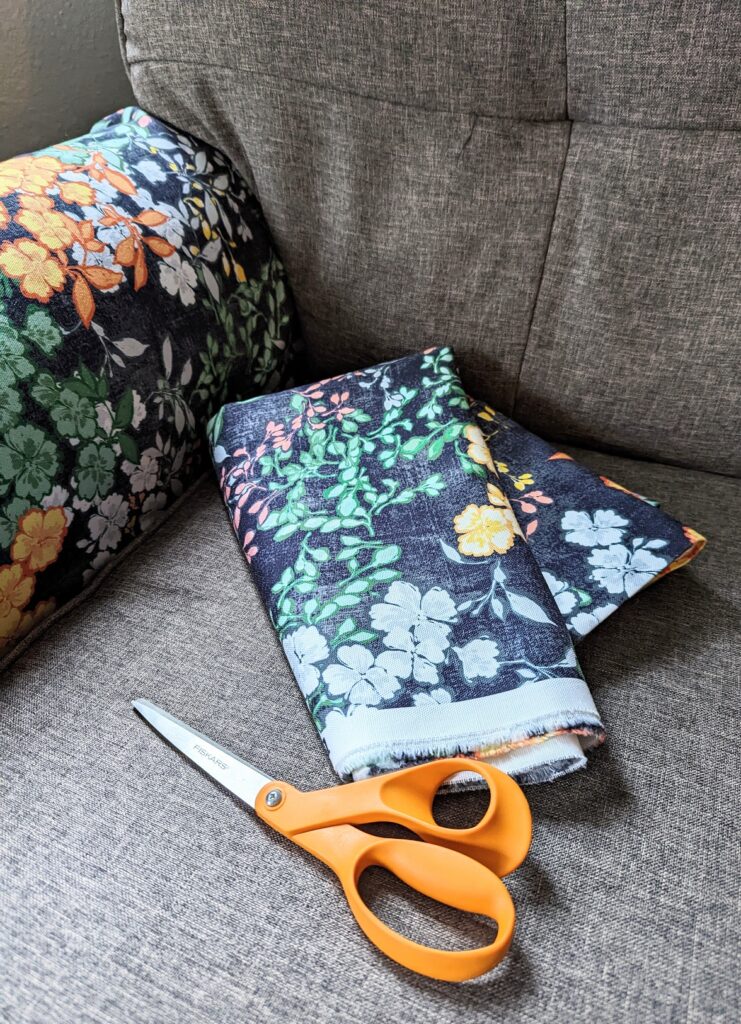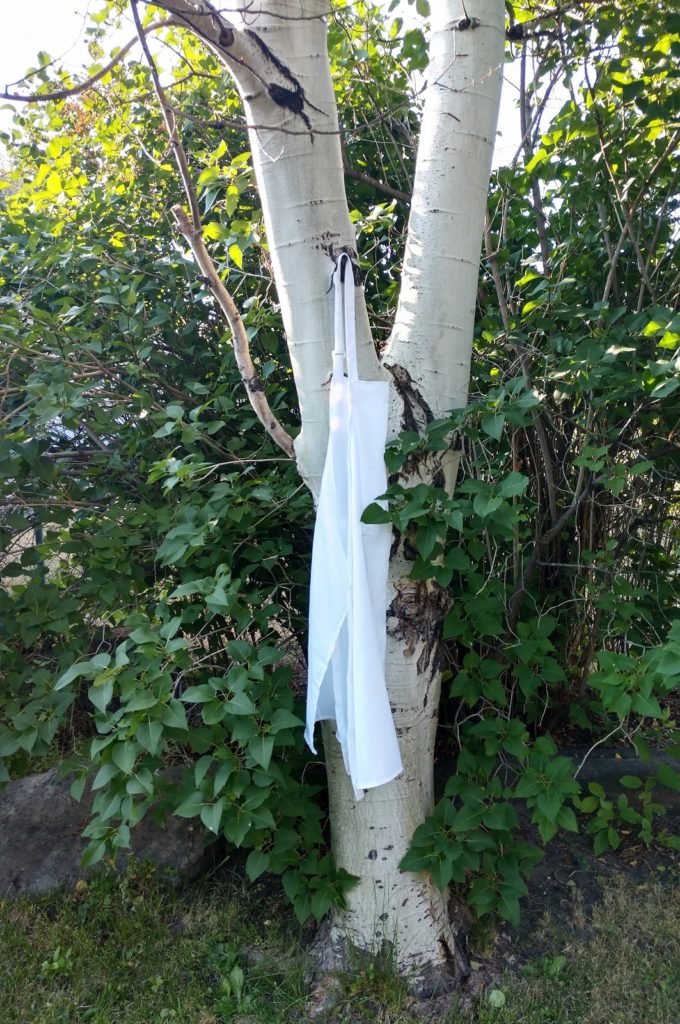
She’d cried the first time she’d walked into the house. It would be the perfect home for this new chapter. The house they were leaving was certainly larger and newer, but this new address made up for a lack of square footage and new appliances with acceptance, warmth, the hoped-for ability to sleep through the night and a fenced back yard.
It wasn’t an impenetrable fence. Squirrels, bunnies and neighborhood cats could gain access, but dogs could not. In fact, one neighbor’s cat, after squeezing under the fence, liked to peer in the sliding glass door to try to strike up a friendship with the resident cat. This usually culminated in the two feisty felines body-slamming the sliding door in an effort to prove who was the most fearsome. (This was good exercise for the indoor cat, and an excellent way for the outdoor cat to stay warm.)
The years passed as they want to do, and this little home showed itself to be the haven she’d wished for. Oh, there were bumps and bruises along the way, but the three of them (plus cat) had always found a safe place to land under the roof and within the fenced back yard. They’d heal their wounds and talk of their slights and remind each other that it always works out.
Part of the reason it always worked out was because in between homeschooling, baking cookies and cranking out homemade pasta; after carving pumpkins, figuring out the new job and scheduling the dentist and vet appointments; before one left for college and after the other hurt himself too many times at the job that built his confidence, she’d been methodically building an imaginary wall around the house and yard. This wall was a borderline even though she was the only one who could see it. It was six feet high and made of stone. Over 17 years, Engleman Ivy had grown over the wall and, this time of year, if they hadn’t already gotten a heavy snow, the leaves were crimson and crackly.
She hadn’t planned for the wall to be this tall. When she’d first started the build, she figured a four-foot wall would certainly provide the protection she felt she needed. She wanted the cats and squirrels and bunnies to still have access. The cats had no problem jumping the four feet and perching on the top of the wall. They’d sit for hours on sunny days pretending to doze but really looking for birds. The squirrels and bunnies used the arched doorway that had long ago been hidden under the overgrown ivy. She’d intentionally built a doorway and included a solid wood door that was six inches thick. By now the hinges were rusty and the lock had yet to be used. The door was propped open, and the ivy prevented it from swinging shut.
More recently, with the arrival of unwanted intruders, she’d had to extend the height to six feet. The ivy had no problem getting to work and hiding the addition. It was hungry to stretch its “legs” and thrilled to have more surface to cover with its tendrils. Still, she hadn’t felt the need to close and lock the door. She’d always figured that was a last resort. It helped her sleep knowing she had the option to close the door if she needed to. (Even her counselor had mentioned that boundaries aren’t permanent, they can be flexible and change just as life changes.)
And so it was that a day came along, just as the leaves had turned that dark shade of red, right before the first snow, when the cats had been particularly aggressive in their body slams at the sliding glass door. She’d been feeling stretched and pulled in too many directions. She’d lost interest in the things she loved. The candle needed more than the two ends. She woke in the night and remembered that she could close the door in the wall. The next morning, after that first cup of coffee, she put on her boots and grabbed the coat she’d put in the closet last April, which was really too soon, since they always seemed to get one more snow before spring staked her claim.
She grabbed a pair of trimmers and slowly, apologetically started cutting away at the Engleman Ivy that had been anchoring the wooden door to the wall. “I’m sorry,” she whispered as she snipped, “You’ll grow back in no time.” A black cat sneaked through the doorway to watch her progress. Squirrel jumped down from his precarious perch on a sunflower stalk to see if he could snack on the ivy clippings. She turned to wave at indoor cat who was standing at the sliding door making sure all knew who was in charge. Once the ivy was cleared away, she’d tried to pull the door closed. The hinges, having been unused for so many years, had forgotten how to do their job. She remembered she had a can of WD40 under the kitchen sink. As she walked into the house, squirrel and black cat ran off to find something more interesting. Indoor cat met her at the door and mewed her questions. She answered with a couple treats for the queen and said, “I’ll be right back.”
The oil did the trick, and with some effort, she was able to get the door closed. Now to find the key for the lock. Would it be in the tool shed, the potting shed or a kitchen drawer? After much hunting and asking cat if she knew where the key was, she found the key hanging from a nail in the tool shed. Unlike the hinges, this key had been wanting to do its job for some time – one turn and a click, and the door was locked.
She went back in the house, put the water on for coffee and took off her boots. “It had to be done,” she said to cat. “Your buddy has never used the doorway anyway. Bunnies can dig a hole underneath the wall and squirrels never have an issue getting into where they want to be. It always works out, remember?”
That night she was able to sit on the couch and read for an hour. (Lately, she’d had a hard time concentrating). Weirdly, she hadn’t felt the need to pour a glass of wine. She sensed a familiar peace settle within the four walls, a peace she remembered from the first time she’d walked into the house. And the sleep? She slept like bears do when they hibernate. She slept like cats do when they find a sunny spot.
And so, the door would stay locked, and the ivy would grow. One day she might decide to clear away the ivy and open it back up, or she might not.








